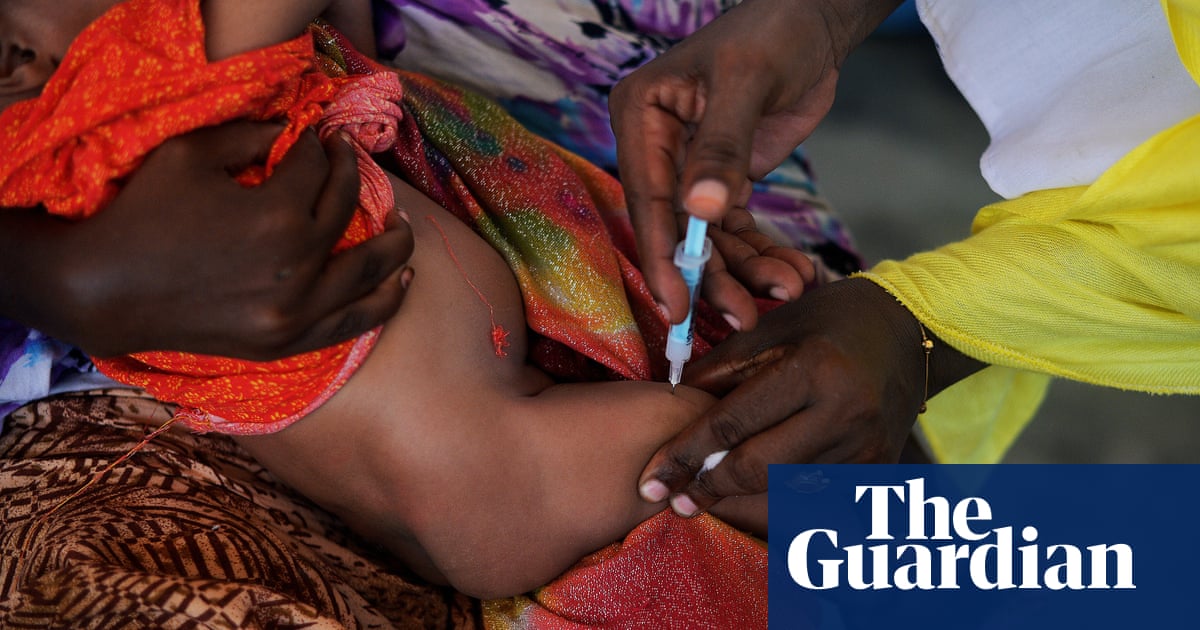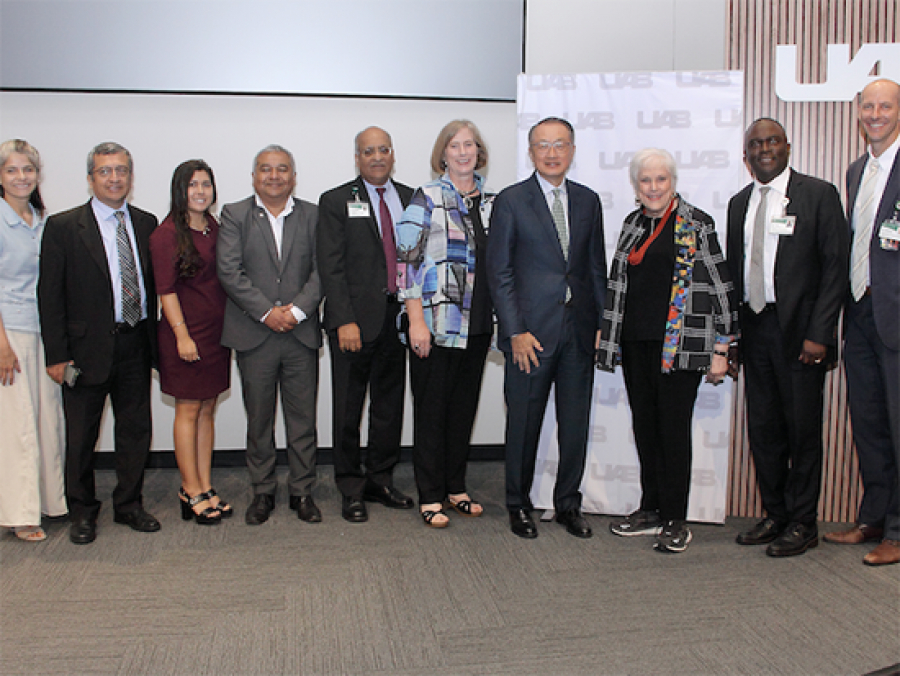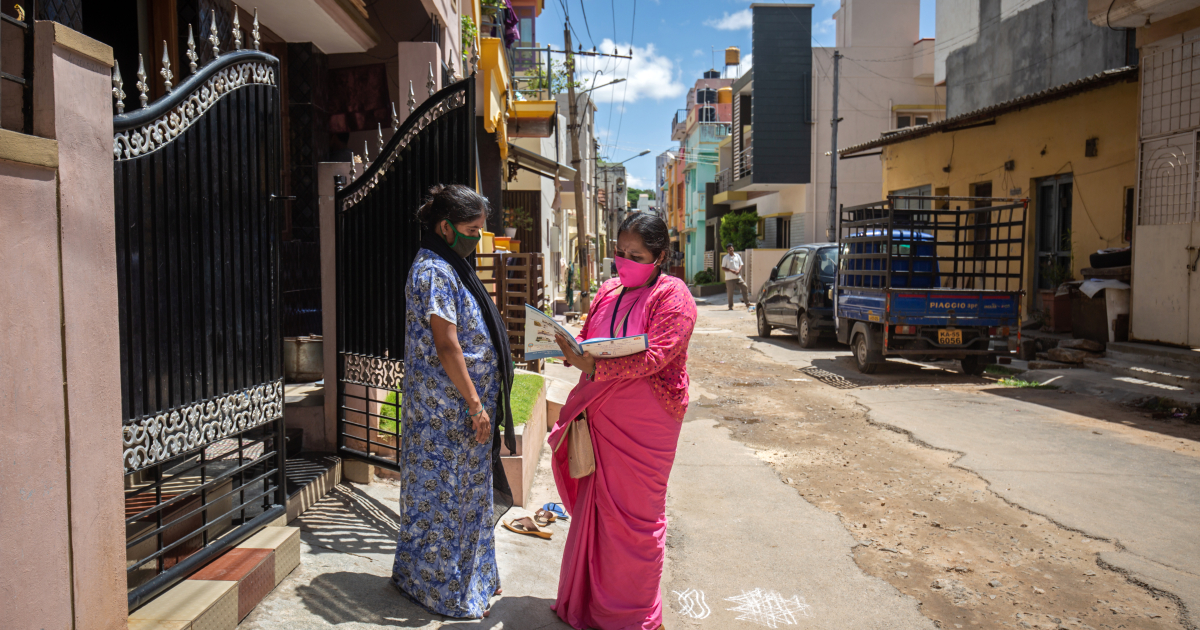In the aftermath of COVID-19, Africa has set out a vision for a New Public Health Order (NPHO) focused on self-sufficiency to secure resilience against future health crises. The vision encompasses localizing the manufacture of health technologies that prioritize African needs and establishing health capabilities to detect, warn about, and respond to disease threats, and to deliver health services to communities in need, including the most remote areas.
The NPHO roadmap has implications for many global health stakeholders, including the United States. Africa has been important in U.S. global health engagement through, among other initiatives, the U.S. President’s Emergency Plan for AIDS Relief (PEPFAR). Africa’s interest in a new public health strategy provides a basis for making health diplomacy between African countries and the United States more effective and expansive. Taking advantage of that opportunity could also foster a new global model for advancing both public health and economic development.
Unpacking the Pan-African Strategy
The vast expanse of the continent means that the pan-African ambition for public health requires meticulous planning to determine the needs, scope, and priorities for health investments, and to ensure they are effective and sustainable. To date, thinking is most advanced concerning African vaccine production, where three strategic priorities have been identified.
Manufacturing vaccines in African countries should aim to ensure equitable access to vital health technologies for pandemic preparedness and response. That objective requires focusing on production platforms capable of quickly scaling up supplies to meet the demands of pandemic-appropriate vaccines.
That outcome will increase global confidence in African public health leadership and technologies in multilateral action against pandemic threats
African vaccine production should also seek to enhance equity in the global market by increasing the affordability and availability of essential vaccines without compromising their safety and efficacy. African vaccine manufacturing entities should focus on entering novel antigen markets or existing markets where their participation would promote healthy competition, stable prices, and ensured supply.
In addition, the African vaccine manufacturing sector should become commercially sustainable. Such sustainability will help ensure the long-term viability of that strategic industry and foster meaningful economic development. The sector should strive for economies of scale and independence from government or donor subsidies.
Applying those vaccine-specific strategies to the broader scope of Africa’s public health needs highlights the continent’s evolving role in shaping both African health and global health. Investing in African capabilities to detect and manage pandemics and manufacture vaccines locally will strengthen global pandemic readiness and response. That outcome will increase global confidence in African public health leadership and technologies in multilateral action against pandemic threats.
Stronger African capabilities on pandemic preparedness and response will permit African governments and nongovernmental actors to play bigger regional and global roles in countering the emergence and spread of many diseases, including, for example, those associated with genetic causes or migration patterns affected by climate change. Increased strategic investments in African public health research and development can lead to knowledge and technological breakthroughs on disease prevention and control that benefit both the continent and the global community.
A production scientist works with samples in a WHO-backed mRNA vaccine hub, in Cape Town, South Africa, on February 11, 2022.
REUTERS/Shelley Christians
More robust and resilient African public health capabilities will also allow African governments and stakeholders to more effectively address diseases that predominantly affect Africans but receive less global health attention. Moving in that direction can create primary commercial market opportunities on the continent and significant secondary markets among members of the African diaspora. Identifying and serving those markets would help develop a socially important health sector and economically viable health industries in ways that advance the vision for a new public health order in Africa.
African Public Health Ambitions and U.S. Engagement in Global Health
Africa’s vision for a new public health order emphasizes self-sufficiency, resilience, and a strategic approach to African health technology production and infrastructure development. That ambitious agenda raises questions about how it affects other global health players, processes, and programs. For Africa, the United States has been one of the most important global health actors, evidenced by the billions of dollars it has spent on the continent to fight HIV/AIDS, malaria, tuberculosis, and other health threats. How should African governments, institutions, and nongovernmental stakeholders interact with the United States within the strategy for a new public health order?
The United States is aware that its approach to public health in Africa should change. The U.S. government has announced initiatives aimed at deepening cooperation with African countries and institutions. Those initiatives present an opportunity to align U.S. policies with African goals on health self-sufficiency, resilience, disease prevention and control, and economic development. For example, the United States has indicated that it will use PEPFAR to purchase health technologies, including diagnostics, that are made in Africa. That change would support nascent efforts in Africa to localize manufacturing of health products.
That shift in PEPFAR is good but still approaches African public health through a donor-driven development paradigm. In that sense, it is an old-wine-in-new-bottles measure rather than a foundationally new approach to a partnership for health security.
A more robust approach would support African health systems and industries on health problems that are significant for both continents and that draw on their historical interconnection. That pathway would place the United States in a unique position to foster the new public health order that African nations envision.
One particularly promising area for collaboration involves the fight against diseases that have a disproportionate impact on people of African ancestry. For example, sickle cell disease is a genetic condition that affects millions worldwide and has a significant prevalence in Africa and among African diaspora populations in the United States. The economic and social impact of sickle cell disease is immense.
A more robust approach would support African health systems and industries on health problems that are significant for both continents
By investing in African research into and treatments for sickle cell disease, the United States can improve health outcomes in Africa and transnationally in old and new African diasporas in the Americas and other parts of the world. The effort could also address the health disparities that those communities have long suffered, help heal historical wounds, and foster a sense of unity and shared purpose.
Increasing the viable market for African-made products against sickle cell disease would move U.S.-African cooperation closer to a partnership of equals in health and trade. As the PEPFAR policy shift illustrates, U.S. confidence in health technologies made in Africa could be an important signal to the global community.
In addition to cooperating on sickle cell disease, African countries and the United States could collaborate on, and mutually benefit from, investments in a portfolio of other shared public health problems and challenges, such as systemic lupus erythematous and other autoimmune diseases, epigenetics, and trauma and mental health. U.S. support for Africa’s new public health order could also extend into initiatives that invest in African health infrastructure, education, and technology transfer.
The range of potential new collaborations between African countries and the United States could enhance pandemic preparedness and improve African health service delivery. The United States could also help Africans build commercially viable health industries across the continent and advance the African vision of achieving resilient public health systems and self-sufficiency in manufacturing health technologies.
A New Model for International Cooperation
The alignment of U.S. policy with Africa’s new public health goals also presents a significant opportunity to forge a new era of diplomatic and economic relationships. Through bilateral and multilateral agreements, joint ventures, and public-private partnerships, the United States and African nations could create an ecosystem that fosters mutual understanding, stimulates innovation, supports economic development, and ensures the health and well-being of their populations.
Grounded in mutual respect and shared goals, such a partnership would support Africa’s ambitious vision for a new public health order and serve as a model for international cooperation in public health and economic development that leads to a healthier, more prosperous world.
Aisha Mohammed, a research associate, aliquots serum into new tubes at Yemaachi Biotechnology, a cancer research laboratory, in Accra, Ghana, on May 19, 2022.
REUTERS/Francis Kokoroko
EDITOR’S NOTE: This article is part of a series exploring a new public health order for Africa, guest-edited by Ebere Okereke. The other articles in the series can be found here.
link






